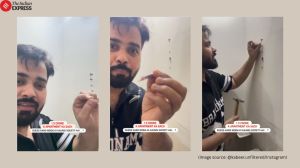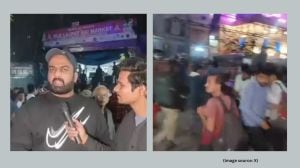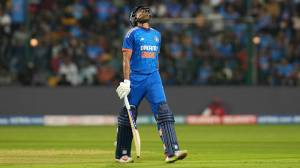Liquor takes US troops’ crime rate to new high
Alcohol, strictly forbidden by the American military in Iraq and Afghanistan, is involved in a growing number of crimes committed by troops deployed to those countries.

Alcohol, strictly forbidden by the American military in Iraq and Afghanistan, is involved in a growing number of crimes committed by troops deployed to those countries. Alcohol and drug-related charges were involved in more than a third of all Army criminal prosecutions of soldiers in the two war zones — 240 of the 665 cases resulting in convictions, according to records obtained by NYT through a Freedom of Information Act request.
Seventy-three of those 240 cases involve some of the most serious crimes committed, including murder, rape, armed robbery, and assault. Sex crimes accounted for 12 of the convictions. The 240 cases involved a roughly equal number of drug and alcohol offences, although alcohol-related crimes have increased each year since 2004.
Despite the military’s ban on all alcoholic beverages liquor is cheap and ever easier to find for soldiers looking to self-medicate the effects of combat stress, depression, or the frustrations of extended deployments, said military defence lawyers, commanders, and doctors who treat soldiers’ emotional problems.
“It’s clear that we’ve got a lot of significant alcohol problems that are pervasive across the military,” said Dr Thomas R Kosten, a psychiatrist at the Veterans Administration Medical Centre in Houston. He traces their drinking and drug use to the stress of working in a war zone. “The treatment that they take for it is the same treatment that they took after Vietnam,” Kosten said. “They turn to alcohol and drugs.”
The use of alcohol and drugs in war zones appears to reflect a broader trend toward heavier and more frequent drinking among all military personnel, but especially in the Army and Marine Corps, the two services doing most of the fighting, Pentagon officials and military health experts said.
A Pentagon health study released in January, for instance, found that the rate of binge drinking in the Army shot up by 30 per cent between 2002 and 2005, and “may signal an increasing pattern of heavy alcohol use in the Army.”
While average rates of alcohol consumption in the Navy and Air Force have steadily declined since 1980, the year the military’s health survey began, they have significantly increased in the Army and Marine Corps and exceed civilian rates, the Pentagon study showed.
For the first time since 1985, more than a quarter of all Army members surveyed said they regularly drink heavily, defined as having five or more drinks at one sitting.



- 01
- 02
- 03
- 04
- 05




























